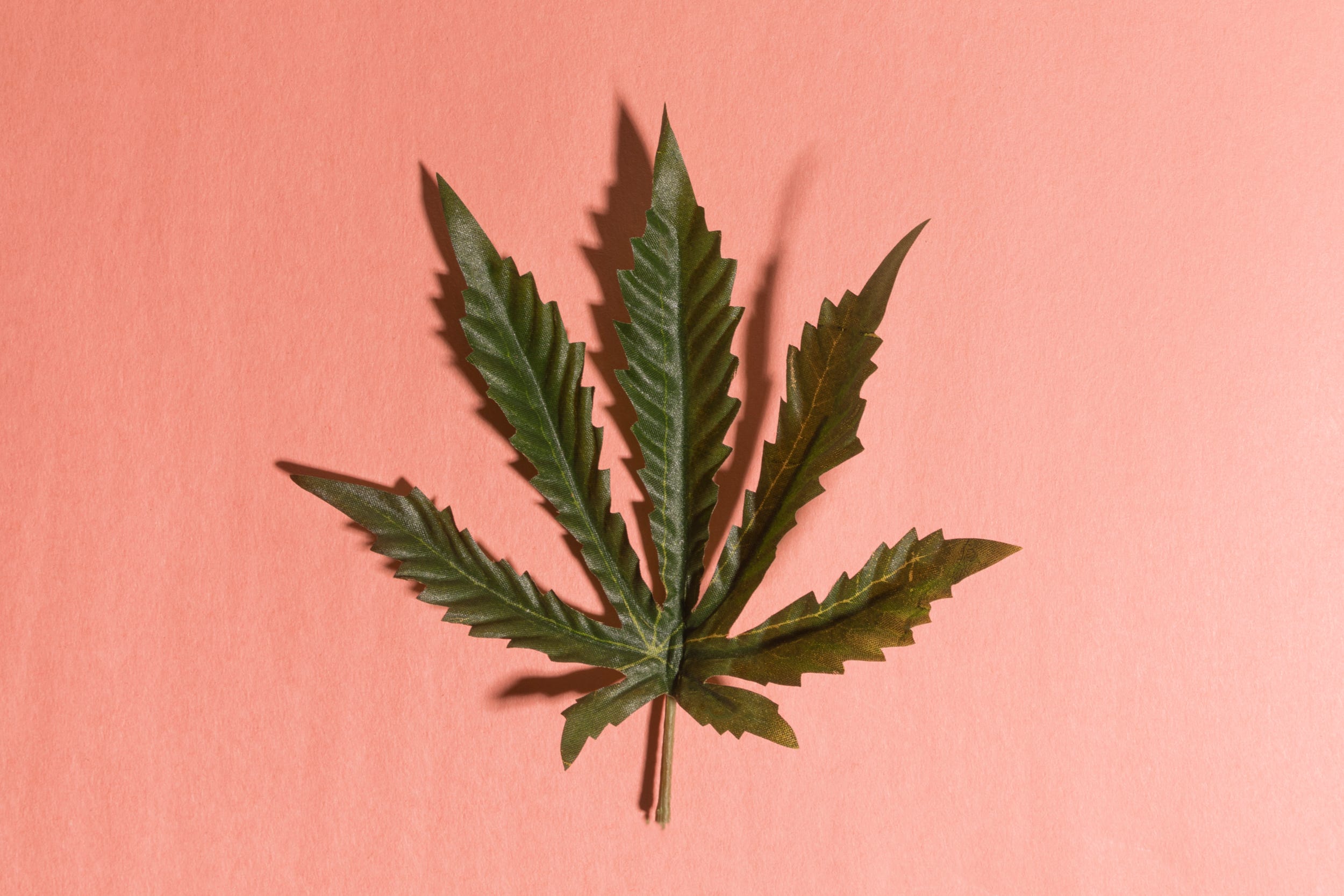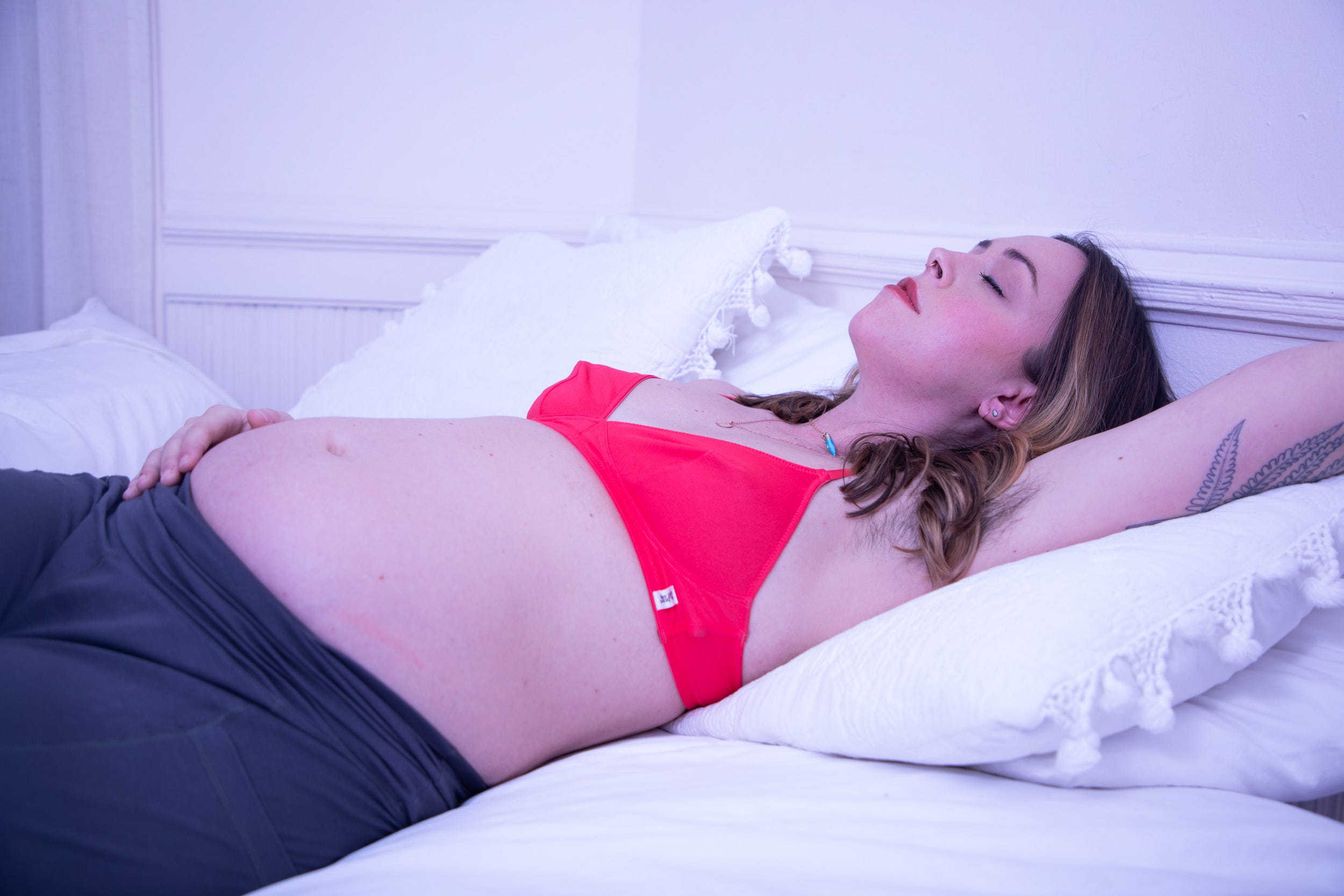
- Cannabis use in pregnancy has been linked with negative birth outcomes and brain development issues.
- But some people find the risk may be worth the trade-off of experiencing serious anxiety or nausea.
- Pregnant with questions? Submit your question to Anna anonymously here for nonjudgmental answers.
- Visit Insider's homepage for more stories.
Dear Anna,
Earlier this year, I went so-called "Cali sober," cutting back on alcohol and introducing more marijuana. It's been a really positive change, with my focus, sleep, and even social life benefiting.
Now, I'm pregnant (yay!), but I don't really want to ditch my edibles – some of my friends say they've helped with morning sickness, and I'd still like the option of enjoying a little buzz here and there over the next nine months. But I know there's research showing potentially harmful effects to the fetus, and I obviously don't want to hurt my baby.
Seems like everything (meats, coffee, and even plastics you can't control) poses a risk in pregnancy. How bad is marijuana really?
– Jen, California
Dear Jen,
Congratulations on your pregnancy! And for making the healthy change away from booze, something we know can lead to permanent physical, intellectual, and behavioral disabilities in babies if consumed when pregnant.
It's also pretty clear that tobacco use during pregnancy can increase the risk of premature birth, birth defects, and even infant death.
The research on cannabis use in pregnancy is less robust, and the findings less conclusive. Until it is, the American College of Obstetricians and Gynecologists encourages abstinence, and the FDA has "strongly advised" against not just THC but also CBD use during pregnancy.
But blanket recommendations can't get into nuances for the individual, and doctors can't always either - in some places, even telling your provider about cannabis use could get you reported to legal authorities.
Let me summarize what some of the research does and doesn't show, and share advice I got from two women's health experts.
Research has linked cannabis use with negative birth outcomes
First, the research.
The most recent study - the largest of its kind to date, published in April - found that pregnant women with cannabis use disorder are more likely to deliver premature, underweight, and small-for-gestational-age babies than moms without the condition. Their babies even had a higher risk of death within the first year of life, though fortunately that was rare.
Moms who also used tobacco had worse outcomes.
Past studies have found the same links, as well as an association between cannabis use in pregnancy and children with lower IQs, attention problems, and more impulsiveness.
Experts say these connections make sense, beyond coincidence or other factors. We know THC can reach developing children through the placenta, and newborns through breast milk. Plus, the compound can disrupt the endocannabinoid system, which plays a key role in supporting a healthy pregnancy and fetal brain development.
Tessa Crume, a researcher at the University of Colorado's School of Public Health, told me the potential brain-related risks most influence her stance that there's no safe amount of marijuana in pregnancy. "A child who has problems with high-order thinking, emotional control, and executive functioning ... those are problems that are going to follow them their entire life," she said.
The research on marijuana and pregnancy comes with caveats
Keep in mind the research's limitations, though.
You can't ethically run a controlled clinical trial that involves giving some pregnant people weed and telling others to abstain in order to compare their birth outcomes. For that reason, studies can't show with certainty the impacts of the drug. Other factors, like socioeconomic status, diet, and stress, can also influence the findings.
Plus, not all the research on cannabis in pregnancy has found it to be damaging.
One recent review of 40 studies on the topic looked at over 1,000 comparisons between groups of kids who were exposed to cannabis in the womb and those who weren't. They found there were only clinically significant differences between the groups 4.3% of the time and, in some cases, the children of cannabis users performed better.
They also found that, for all kids, scores were only below a normal range of functioning in 0.3% of cases.
This research has limitations too.Not all of the studies reviewed included data on what's considered "normal" functioning, so more children of cannabis users may have fallen below normal than were detected. The study also can't tell us about marijuana's potential impact on birth outcomes.
But the researchers say it does show that the narrative of "marijuana is dangerous in pregnancy" is often oversimplified, which can stigmatize, and sometimes seriously penalize, women.
Consider the benefits and risks to you
If giving up weed leads you to drink again, well, that's an unhealthy tradeoff. If it means experiencing skyrocketing anxiety, sleepless nights, and debilitating morning sickness, doing so may not be worth it either.
As Lynn Paltrow, a lawyer who serves as president of the National Advocates for Pregnant Women, told Insider, studies can't control for "the stress that would have occurred had it not been for the marijuana."
But if tucking away your gummies for the foreseeable future just means sacrificing a light buzz as you wind down, or feeling a bit of FOMO, it may be the right move for you. Consider too if you'll even enjoy the buzz if its potential effects on your baby is on your mind.

Seek support when you're looking to make any behavior change in pregnancy
You're asked to make a lot of changes as a pregnant person, and that's not easy, though it may seem like it should be.
"We're all just humans walking around with our crutches ... and people don't care about women's crutches that much until we get pregnant, and then we get all of this judgment without a lot of support," Crume said.
"To move forward, we need to be less judgmental and more realistic about how we're going to help women have alternative tools to deal with the symptoms they were using the substances for in the first place."
A good mental health professional whom you can tell about your habit and desire to stop is a good place to start. They can prescribe behavioral or pharmaceutical tools to help satisfy whatever need your edibles were filling.
Test out safe ways to self-medicate, too. When writer Rebecca Henderson was pregnant, she found bubble baths were relaxing, naps were "a trip," and TV shows could allow her to zone out or feel happy, she wrote for Mom.com.
Make plans for how you'll handle temptations, ask the people you usually get high with to support your break, and give yourself some grace if your habits don't change overnight.
"No one can guarantee a healthy birth outcome," Paltrow said. "We have to stop thinking there is some sort of super human power during the couse of pregnancy that can guarantee a perfectly healthy environment [for the developing child]."
Senior health reporter Anna Medaris Miller is here to answer all of your questions about pregnancy- especially the ones you don't want to bring to your doctor or even friends. As a journalist covering women's health for more than a decade, she'll mine the research, consult a range of experts, and give you the key takeaways. Submit your question anonymously to Anna here.
